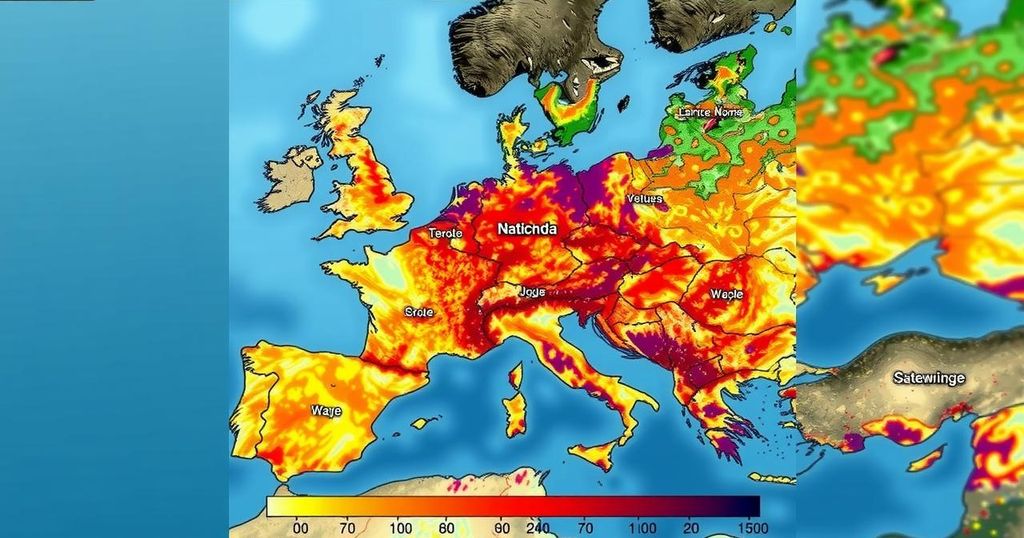Record November Heat in the Arctic: A Sign of Climate Change’s Impact

On 8 November 2024, Kirkenes, Norway recorded an unprecedented temperature of 11.6°C, highlighting alarming climate change impacts. Tourists faced canceled winter activities due to unusual warmth, echoing similar trends across the Arctic. Experts warn that such temperature increases pose severe risks to ecosystems, marine species, and global weather patterns, indicating a need for urgent climate action.
Record temperatures across the Arctic region have been observed, signaling alarming impacts of climate change. On 8 November 2024, Kirkenes, located in Arctic Norway, experienced an unprecedented temperature of 11.6°C, surpassing the previous record for November by 2.8 degrees. Tourists, such as Sap and Yee from Singapore, expressed disappointment at the cancellation of winter activities due to the unusual heat, highlighting the broader consequences of global warming. Similar heatwaves were recorded in Tromsø (11.4°C), Alta (14.7°C), and Hammerfest (11.8°C), with the city of Murmansk in Russia reaching 10°C, a level not seen since 1975. Physical oceanographer Arild Sundfjord emphasized that these changes are direct indicators of climate change, leading to serious global consequences like rising sea levels and habitat loss for species such as polar bears. Furthermore, the Norwegian Meteorological Institute noted that 2024 could become the first year to exceed the Paris Agreement’s 1.5°C limit. The earlier unseasonably warm summer in Kirkenes underscores the urgent reality of climate change, prompting discussions on its far-reaching effects on local ecosystems and tourism.
The increasing temperatures in the Arctic serve as a stark reminder of climate change’s impacts on global weather patterns. In recent years, record-breaking warmth has been reported across several regions traditionally associated with winter climates. This trend not only disrupts seasonal tourism but also poses significant risks to local wildlife and ecosystems. Experts underline the correlation between these temperature spikes and broader shifts in climate, warning of future ramifications, including extreme weather events and displacement of species.
In summary, the record-breaking temperatures experienced in Arctic regions exemplify the stark realities of climate change. These conditions not only affect tourism and local economies but also threaten biodiversity and the stability of natural habitats. As global temperatures continue to rise, the repercussions could become increasingly severe, necessitating urgent attention and action to mitigate such developments. The insights from climate experts underscore the immediate need for collective efforts to combat climate change and safeguard vulnerable ecosystems.
Original Source: www.thebarentsobserver.com






